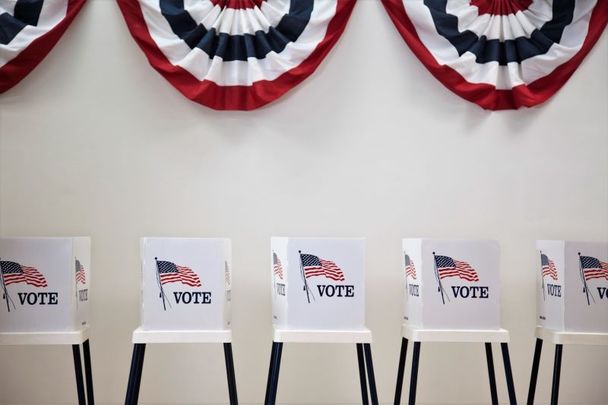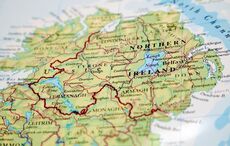As America welcomes its first female Vice President elect Kamala Harris, I’d like to share with you the story of another woman politician who broke the glass ceiling, Jane Byrne (nee Burke).
Politics has always been a rough profession especially for Irish Americans who had to fight against institutional prejudice. It gave rise to many individuals with characters of steel who changed the way America looked and worked.
One such politician was Jane Margaret Byrne, the first woman to be elected Mayor of Chicago, who finally broke the glass ceiling in the windy city.
Jane Margaret Byrne was born on the 24th of May 1933 in Chicago to second-generation Irish American parents Marie and Edward Patrick Burke.
Raised on the city's north side, Byrne attended Saint Scholastica High School. A highly intelligent young woman, Byrne graduated with a bachelor's degree in chemistry and biology in 1955.
Whilst at college she had met and fallen in love with a young Marine pilot William P Byrne. Shortly after her graduation, they were married and Jane's only child Katherine C Byrne was born in 1957.
The young family would soon face tragedy when on the 31st of May 1959, William Byrne was killed when his plane crashed in dense fog after two failed landings.
Aged just 26, Jane Byrne was now both a widow and a single mother. However, showing the tenacity and determination that would be a hallmark of her future career she decided to enter politics and volunteered as part of JFK's campaign for President in 1960.
It was during this campaign that she met the man who would help shape her political destiny and whose family would ultimately end her career, the legendary Chicago political boss and fellow Irish American, the Chicago Mayor Richard J Daly.
Daly was immediately impressed by the energy and intellect of the young Byrne and soon appointed her to his anti-poverty program.
Jane served in numerous roles for Daly and in 1968 she was appointed head of the city’s consumer affairs department.
In 1972, Byrne served as a delegate to the Democratic National Convention and, despite the opposition of the predominantly male Chicago democratic leadership, in 1975, Mayor Daley appointed Jane as the chairperson of the powerful Cook County Democratic Central Committee. This was a role that helped her learn first-hand the inner workings of the “Democratic machine.”
When Mayor Daley died suddenly in 1976, the Democratic leadership under newly appointed Mayor Michael Bilandic removed Jane from the central committee.
Never afraid of a fight, Byrne accused the Mayor of a shady backroom deal to increase regulated taxi fares. Mayor Bilandic retaliated by sacking Byrne from the city administration.
Byrne was determined to exact revenge and in August 1977 she announced her intention to challenge Bilandic in the 1979 Democratic mayoral primary.
During her campaign, she married Jay McMullen, a noted reporter for the Chicago Daily News and the Chicago Sun-Times.
Political observers gave Byrne short odds in ousting Bilandic, but events transpired to assist her.
In January 1979, a blizzard paralysed Chicago, and the city ground to a halt. Locals blamed Bilandic for the chaos. Byrne also received the powerful endorsement of Jesse Jackson giving her a strong position with African Americans and Republican voters turned out in large numbers to vote for her in the primary.
Byrne ousted Bilandic in the primary 51% to 49% and in the general election she trounced her Republican opponent, winning in a landslide with 82.1% of the vote, still the largest margin in a Chicago mayoral election.
On the 3rd of April 1979, Jane Byrne smashed the glass ceiling and was elected as the first woman mayor of America’s second-largest city.
April 3, 1979: Jane Byrne becomes Chicago's 50th mayor - the first woman elected to the office.#ChicagoHistory pic.twitter.com/3WbJg7gfxV
— Chicago History ™️ (@Chicago_History) April 4, 2016
Byrne proved to be a progressive mayor. She hired the first African American and female school Superintendent. She worked closely with the gay community and effectively banned handgun possession with strong regulations on gun registration.
The highlight of her first year as mayor was the visit of Pope John Paul the 2nd to Chicago in October 1979. At the time, Chicago had the second largest Polish community in the world, surpassed only by Warsaw and the visit was a great success.
Determined to revitalise the city, Byrne championed plans for the 1992 Chicago world’s fair and used special events such as Chicago fest to revitalise downtown Chicago.
In August 1982, Byrne decided that she would seek a second term as mayor. However, the demographics of Chicago had changed and she was defeated in the primary by African American Lawyer Harold Washington, who went on to win the Mayoral Election.
Byrne ran again against Washington in 1987 but was narrowly beaten. She then lost out to Mayor Daley’s son Richard in the 1991 primary, which effectively ended her political career.
Her husband Jay died of cancer just a few months later.
Mayor Byrne's book, My Chicago, was published in 1992 and covers her life through her historic political career.
The woman who smashed the political glass ceiling entered hospice care and died on November 14, 2014, aged 81.
This article was submitted to the IrishCentral contributors network by a member of the global Irish community. To become an IrishCentral contributor click here.




Comments